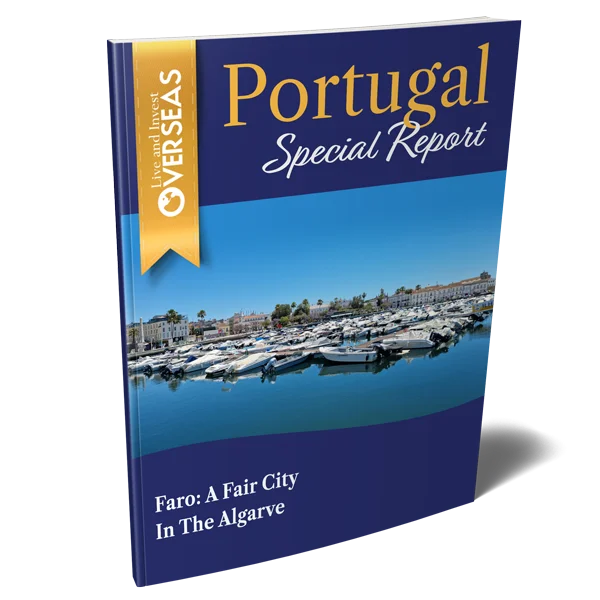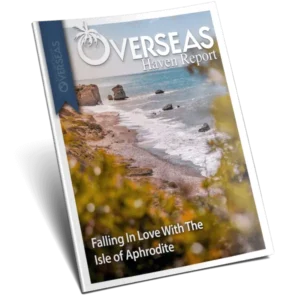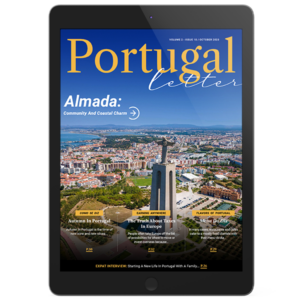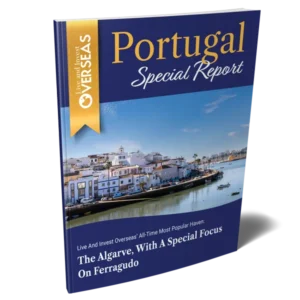I was wrong about Faro.
Before I ever saw the city, I convinced myself it was boring. My rationale? It had an international airport, so I concluded it was overrun by mass tourism and should be avoided.
Not true at all, I discovered!
Yes, the tourists fly in, of course, but Faro has kept a strong Portuguese identity and its lively center, with a marina, jacaranda trees, and stately buildings, is a tonic for the eye.
The place has character and a keen sense of history. It’s not a clone of anywhere else and the smart money, domestic and foreign, is arriving to boost the economy.
Until recently, an area to the west of Faro dubbed the Golden Triangle attracted most of the attention on this stretch of coast and foreigners with money tended to invest there.
The Golden Triangle is bounded by the resort town of Vilamoura, the gated communities of Vale do Lobo and Quinta do Lago, and finally, the village of Almancil.
Now, more real estate investment is coming into Faro itself and the city has a confident, expansive air. It’s at its best in May, when the jacarandas are in bloom and the occasional stork scuds across the sky.
I have a soft spot for Faro because it was my home throughout two COVID-19 lockdowns. The city was deserted but the shoreline was alive and helped to keep me sane. I used to stroll down to the lagoon edge, close to the marina, and I watched crabs scuttling over the mudflats or spoonbills flying in.
I can’t view Faro as just any other city. But by any objective criteria, it’s a fine town. As befits the capital of the Algarve, Faro has much to offer, from a medieval town center to a university, from excellent restaurants and cafés to live concerts.
The city has dedicated admirers, and I talked to one particularly ardent fan at his office in the lobby of the Hotel Faro, close to the marina…
“Faro is at the beginning of something big,” said entrepreneur Richard Vessot, who after years of wandering has made Faro at least his temporary home.
Vessot, a vivacious anglophile Frenchman who spent five years living in Liverpool, has a love of watery cityscapes and clearly feels at home in Faro, where the waters of the lagoon caress the shore not far from his office.
“Faro is water,” said Vessot, the sales manager for a villa development called Quinta de Faro run by MJ Développement. A cynic might say it’s his job to enthuse, but the enthusiasm runs deep and is infectious.
Vessot has lived in sub-Saharan Africa and finds attractive echoes of Africa in Faro, in the slow, laid-back lifestyle, the refusal to be rushed.
But Vessot has a competitive streak, too, and he relishes the challenge of bringing Faro more into the limelight, of stealing some of the thunder from the Golden Triangle.
He sells villas in Faro itself, in the suburb of Montenegro, and he gleefully produced one little example of how Faro was acquiring a higher profile. He noted that Faro’s CHECK-In restaurant was now attracting diners from towns like Vilamoura.
This, he argued, was a new phenomenon. Traditionally, gourmet traffic had been in the opposite direction. CHECK-In, run by Michelin-starred chef Leonel Pereira, is a class act. I went there and ate the most tender suckling pig, leitão, served with red cabbage and ginger.
I dined at an outside table, in traditional Portuguese style, not encased in some formal gastronomic temple.
So Faro has a French-born champion who lauds its authenticity. Perhaps the challenge for Faro will be to keep that laid-back authentic quality, even as the foreign money rolls in.
Let’s take a wide-angle lens now and see how Portugal as a whole fares in international surveys on the best places for expats to live and work…
The good news is that expats view it more favorably than anywhere else in Europe. A survey published in July by InterNations, the world’s largest expat community, looked at the pros and cons Faro, A Fair City In The Algarve of life in 52 destinations and placed
Portugal fourth, after Mexico, Indonesia, and Taiwan. New Zealand was close to the bottom.
Overall, 85% of those surveyed were happy with their life in Portugal. They appreciated the sun and the friendliness. On the debit side, most found Portuguese bureaucracy difficult, and Portugal fared badly in the “Working Abroad” index because of the local job market.




